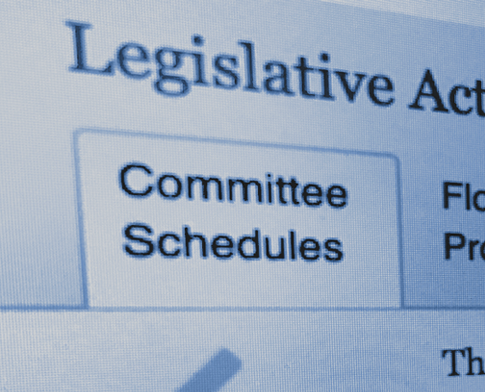Health Update (September 24)
Speaker Nancy Pelosi’s (D-CA) release of her drug pricing bill topped the healthcare headlines on Capitol Hill this week as it drew mixed reactions from both parties. In other news, the House Energy & Commerce Committee held a hearing on the pharmaceutical industry generally and the House passed a Continuing Resolution (CR) to extend federal funding through November 21.
House E&C Hearing
The House Energy & Commerce’s Subcommittee on Consumer Protection & Commerce held a hearing on Thursday (Sep. 19) entitled “Profits Over Consumers: Exposing How Pharmaceutical Companies Game The System.” Committee Republicans displayed their displeasure with the way House Democrats are exclusively dealing with healthcare legislation on their own, when there has been lots of talk on bipartisan solutions to current issues in the drug-pricing and surprise billing realm. Ranking Member of the Full Committee, Greg Walden (R-OR) and Ranking Member of the Subcommittee on Consumer Protection & Commerce, Cathy McMorris Rodgers (R-WA) both voiced their disappointment in the process of Speaker Pelosi’s (D-CA) rollout of her drug-pricing plan. They pointed to the E&C Committee’s history of bipartisan accomplishments, specifically pertaining to healthcare, and argued they should be allowed to participate in conversations of any drug-pricing bill, as it is a bipartisan issue. The committee then moved to the witnesses, discussed the role of biosimilars and product-hopping. Rep. Buddy Carter (R-GA), gave the most spirited conversation of the day, claiming that the current climate of PBMs taking advantage of the system through rebates and a lack of transparency is outright criminal. He urged the committee to address this issue in the coming weeks. To read an executive summary of this hearing, click here.
Drug Pricing
Pelosi Drug Pricing Bill
Speaker Pelosi’s much anticipated drug pricing bill was released this week with mixed reactions from both sides of the aisle. Initial praise came from the moderate factions of the House Democrats upon release of the bill, with their only fears being whether or not the bill will be dead upon arrival in the Senate. Members of the Congressional Progressive Caucus were upset about the lack of transparency that went into crafting the bill and that it didn’t meet their standards of the number of drugs they wanted to be negotiated. House Republicans criticized the entire rollout process of the bill and adamantly voiced their frustration during hearings throughout the day on Thursday (Sep. 19). At a high level, the Pelosi draft would require the HHS Secretary to annually identify the 250 brand-name drugs that lack price competition with the greatest cost to the U.S. healthcare system. The secretary would use data provided by Medicare, Medicaid, and commercial insurance to make the determination about aggregate cost, which is a measure of price and volume of sales. An eligible drug that lacks price competition will be defined as a brand-name drug that does not have a generic or biosimilar competitor on the market. The secretary would “negotiate” the price by setting a maximum price for the drug. The legislation sets the maximum price at no more than 1.2 times (or 120 percent) of the volume-weighted average of the price of six countries (Australia, Canada, France, Germany, Japan, and the United Kingdom), known as the Average International Market (AIM) price. The government set price would apply to Medicare, Medicaid, and the commercial market. If a manufacturer refuses to negotiate, they will be assessed an escalating excise tax levied on the manufacturer’s annual gross sales – starting at 65 percent and increasing by 10 percent every quarter the manufacturer is out of compliance, to a maximum of 95 percent. This penalty is so large that it would either force the manufacturer to participate or cause the manufacturer to stop selling the drug in America. In addition to setting the price for select drugs, the legislation would limit the price of all drugs in Parts B and D from increasing faster than inflation each year. The legislation also sets a first-ever $2,000 cap on what seniors must pay out of pocket for their drugs under Medicare Part D. [1]
House E&C CBO Score
Not to be lost amongst the headlines surrounding the Pelosi bill, the Congressional Budget Office (CBO) scored the House Energy & Commerce bill (H.R. 2328) that would extend funding for several federal public health programs, change portions of Medicare, and reduce scheduled cuts to allotments for Medicaid disproportionate share hospitals (DSH) that defray the costs of treating uninsured and Medicaid patients. CBO and the staff of the Joint Committee on Taxation (JCT) estimate that enacting H.R. 2328 would increase direct spending by about $41.0 billion and increase revenues by $20.9 billion over the 2019-2029 period, for a net increase in the deficit of $20.1 billion. [2] The Senate Finance’s bill aimed at lowering prescription drug prices is still awaiting a score from the CBO. A link to the House E&C bill’s CBO score can be found here.
House CR Passes
This week, the House passed a Continuing Resolution (CR), 301-123, to extend federal funding through November 21 and avoid a government shutdown at the end of the month. The legislation contains a variety a health extenders that had been negotiated by House Energy and Commerce and Ways and Means Committees, including, but not limited to;
- Special Diabetes Program
- Medicaid & Medicare Programs
- Community Mental Health Services Demonstration Program
- Federal Medical Assistance Percentage for Territories
- Health Profession Opportunity Grant
- Temporary Assistance for Needy Families Program
- Alaska Native Regional Health Entities
- World Trade Center Health Program
- Medicaid Improvement Fund
The legislation excludes generic drugs from the calculation of the average manufacturer price of its brand product for Medicaid purposes, and removes manufacturers from the definition of “wholesaler” in the Medicaid Drug Rebate Program. [3]
References
[1] Ferris, Sarah. “Pelosi steams ahead with drug pricing plan as liberal angst grows.” Politico Pro. 18 Sept. 2019. https://subscriber.politicopro.com/article/2019/09/pelosi-steams-ahead-with-drug-pricing-plan-as-liberal-angst-grows-1749719
[2] “H.R. 2328 Reauthorizing and Extending America’s Community Health Act.” Congressional Budget Office. 18 Sept. 2019. https://www.cbo.gov/system/files/2019-09/hr2328.pdf
[3] “H.R. 4378, Continuing Appropriations Act, 2020, and Health Extenders Act of 2019.” House Rules Committee. 18 Sept. 2019. https://appropriations.house.gov/sites/democrats.appropriations.house.gov/files/documents/H.R.%204378%20Summary.pdf
HOUSE.GOV
The Week Ahead
For the main events of the next week and more, go straight to the key events on the house.gov website.
SENATE.GOV
The Week Ahead
For the main events of the next week and more, go straight to the key events on the senate.gov website.


